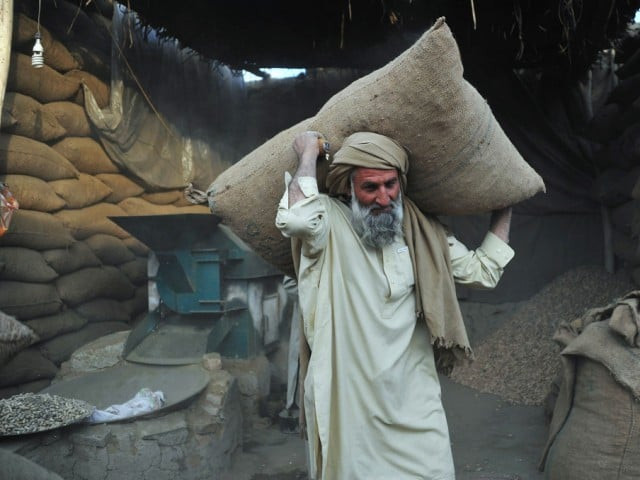Progressive politics: Working people’s organisation sought to effect change
Need for strengthening public sector institutions in the country

PHOTO: AFP
Economist Ali Cheema said on Sunday that the question of outside interference in the country’s affairs was tied to the state’s dependence on borrowing from other countries and international financial institutions. “Foreign loans come with conditions. You have to abide by these conditions to keep receiving loans,” he said.
He was speaking at a session on Progressive Politics in the Subcontinent: Present and Future on the fourth day of Faiz International Festival.
Cheema said there was a need to organise working people to transform the society in accordance with progressive ideals. He said only such an organisation could lead a progressive social movement in the country, he said. He urged the need for proper understanding of capitalism and how it operated in the Pakistani context. “People from a feudal social background cannot represent peasants or wage labourers,” he said.
Referring to a popular phrase attributed to Karl Marx, Cheema said the absence of a dictatorship of the proletariat was bound to lead to a dictatorship of the capitalist.
He was responding to moderator Ali Hashmi’s comment on Awami Workers Party president Abid Hasan Minto’s use of the phrase. Hashmi said dictatorship had become a negative term because of its affiliation with oppressive military governments in the country. He said it was important to clarify that Marx had used the term in a different context.

Earlier, Minto highlighted the role of Leftist political parties in bringing about progressive social change. He said under classical Marxism the working class needed to organise to defeat the status quo forces. He also said that such an endeavor should follow a comprehensive study of the class structure in the Pakistani society.
Minto also stressed the need for strengthening public sector institutions in the country. He said role of political parties in the opposition could be crucial in this regard. He said opposition parties needed to stand up against the government’s privatisation policy. He said such opposition could strengthen democracy in the country.
Minto recalled the struggle for land reforms in the country. He said a constitutional petition seeking land reforms had not yielded any fruit because there was difference of opinion among the judiciary on whether or not these were allowed under the Shari’a. He said some judges had observed that land reforms required a constitutional amendment.
Legal scholar Osama Siddique favoured reforms in the country’s legal structure. He said changing the political and economic structures would depend on a better understanding of social forces that stood to benefit from the prevailing structures.
Siddique said state institutions in the country were still weak. He said even the army lacked institutional coherence. “Many decisions attributed to the army are decisions made by individuals, not an institution,” he said. He said the establishment of the Federal Shariat Court had enhanced religion’s influence in interpretation of laws.
Published in The Express Tribune, November 23rd, 2015.


















COMMENTS
Comments are moderated and generally will be posted if they are on-topic and not abusive.
For more information, please see our Comments FAQ